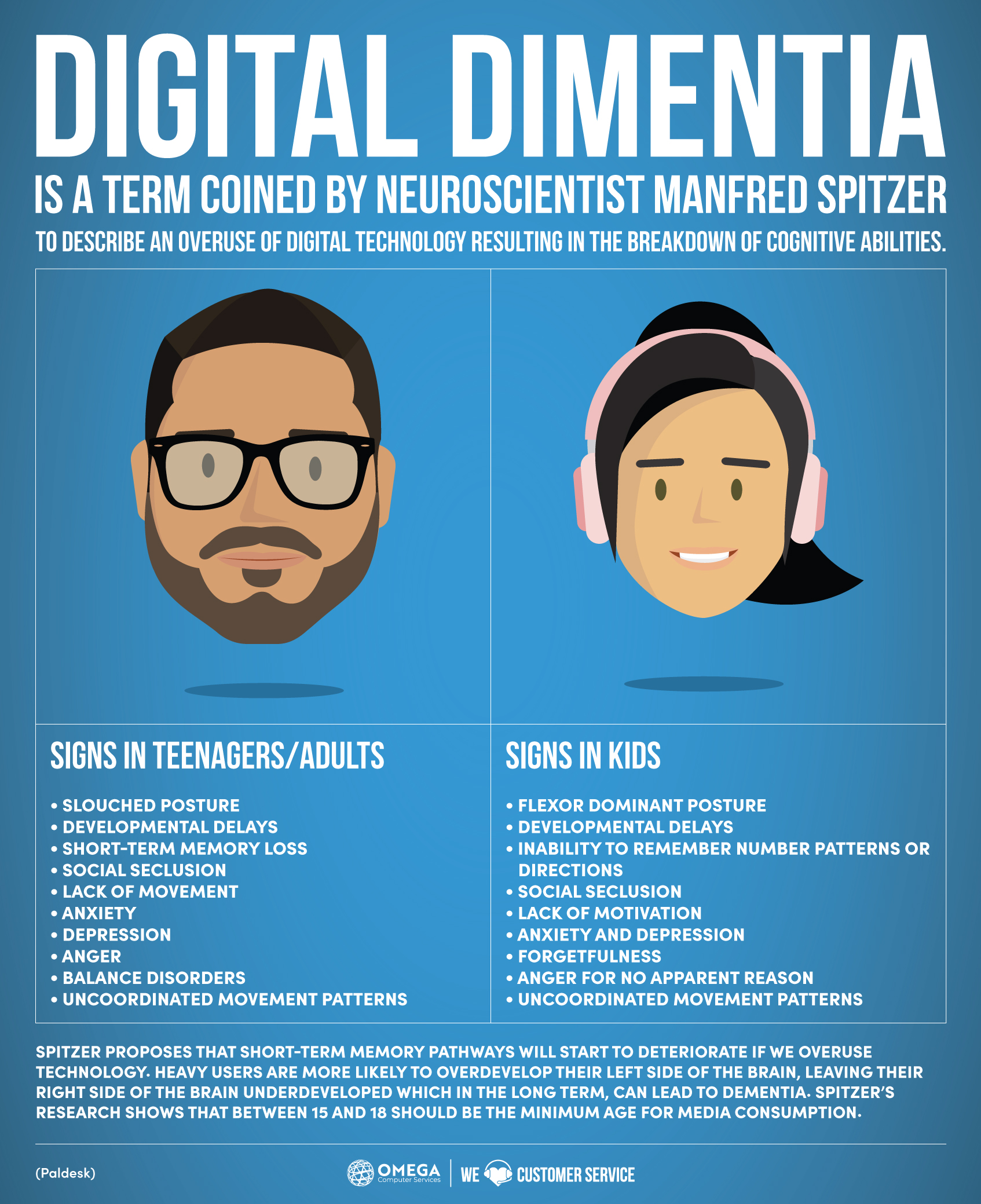Digital Dementia: What It's Doing to Us and How to Deal with It
Updated on: August 29, 2025
Do you know your parent’s phone numbers? What about the capital of Michigan? Or even directions to your favorite coffee shop?
Most of us would just use our phone to look all of this up. Even a simple math equation like 18-9 we type in our calculator on our phones just to be sure. Yeah, it’s easy to just get all of this information right from our phones, but if you’ve ever heard the phrase “use it or lose”, then you know where I’m going with this.
Digital Dementia: What It's Doing to Us and How to Deal With It
WHAT IS IT
“Digital Dementia” a term coined by Manfred Spitzer, a neuroscientist, in 2012 is used to describe how the overuse of digital technology results in the breakdown of cognitive abilities. Meaning, individuals who rely heavily on technology may suffer deterioration in cerebral performance such as short-term memory dysfunction.
WHAT IT’S DOING TO US
As a result of younger children using cellphones, iPads, tablets, etc. they are not required to remember phone numbers, addresses, and other key information that previous generations grew up having to memorize.
At such a young age, children are relying on their smart devices to memorize and know information for them causing unbalanced development of the brain. The left side of our brain is responsible for rational, linear, fact-finding skills, while the right side is intuitive, imaginative and emotional. By not utilizing the right side of our brain there has been deficits in the ability to concentrate, short attention and memory spans, and emotional disturbances.
We have become so dependent on technology that instead of trying to recall information organically from our own memory and brain we just look it up on our phones or with Google instead. This is affecting the way students learn. Instead of students having to memorize and be able to recall information they have all the information at their fingertips, via phones and tablets.
But, are they really learning at that point or are they just able to use Google effectively?
Look at this: : Is America Facing a Digital Dementia Epidemic?
“Shrinking attention spans: Goldfish 8 seconds compared to humans 7 seconds”
HOW TO DEAL WITH IT
Can you recall the first 3 questions you read at the beginning of this blog, what were they?
If you can’t remember they were do you know your parent’s phone numbers, what’s the capital of Michigan (Lansing, by the way...), and do you know the directions to your favorite coffee shop? If you had to use your phone to look up all three of those you could be suffering from digital dementia. Next time, instead of reaching for your phone right away take time to think and use your own memory to recall information.
If we want to prevent digital dementia then we need to shift away from our natural reflex being to use our phone to look up information and make the switch back to using our brains, I mean that is what we have them for. We can also limit our screen time, by forcing ourselves to do other activities without a screen in front of our face will give our eyes and brain a break from digital strain.
“The average American spends 5.4 hours a day on their phone. ”






